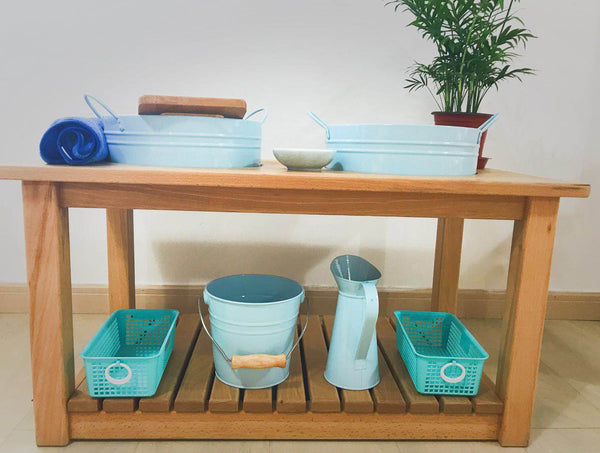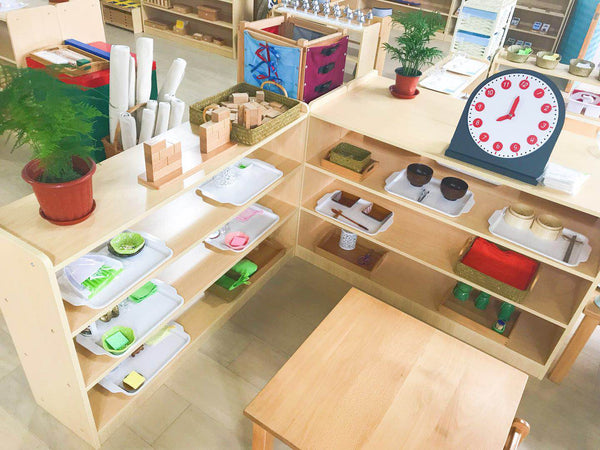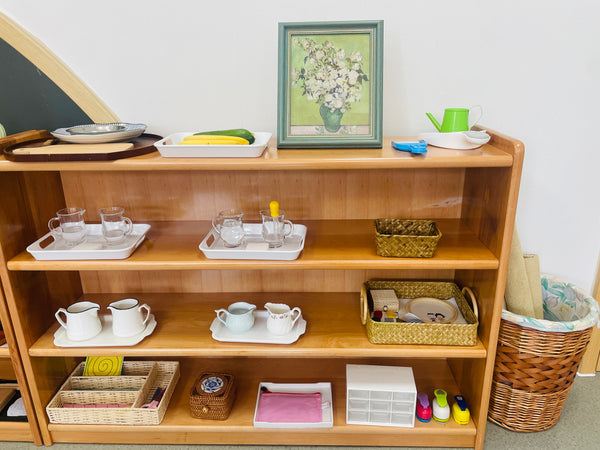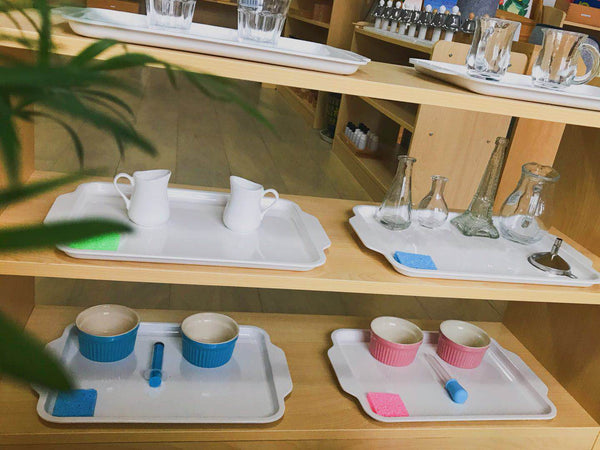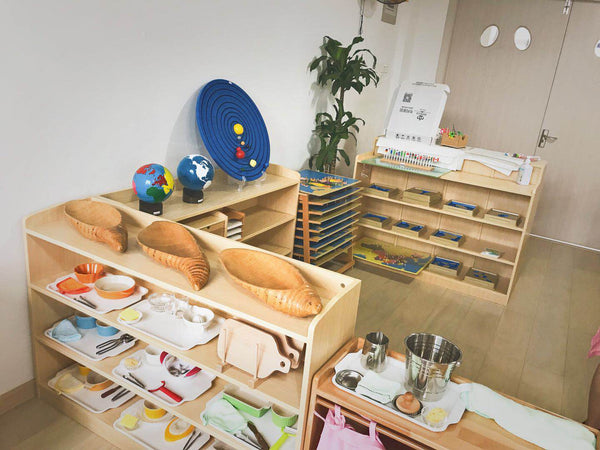Montessori KIT 6 (PRACTICAL LIFE)
Montessori KIT 6 (PRACTICAL LIFE)
The Montessori Practical Life area is a vital component of the Montessori curriculum, focusing on providing children with practical, everyday life skills. It aims to develop independence, concentration, coordination, order, and a sense of responsibility. Here are key aspects of the Montessori Practical Life area:
-
Activities based on real-life tasks: Practical Life activities are based on tasks commonly encountered in daily life, such as pouring, spooning, buttoning, washing, sweeping, and food preparation. These activities enable children to develop skills that foster independence and contribute to their overall self-care and care of the environment.
-
Care of self: Practical Life activities emphasize care of self, including tasks like dressing, washing hands, brushing teeth, and independently taking care of other personal hygiene needs. These activities help children gain independence, develop fine motor skills, and build self-confidence.
-
Care of the environment: Children are encouraged to engage in activities that contribute to the care and maintenance of their classroom and the surrounding environment. This includes tasks such as sweeping the floor, watering plants, dusting shelves, arranging flowers, and organizing materials. These activities promote responsibility, respect for the environment, and a sense of order.
-
Development of fine motor skills: Practical Life activities involve the use of small, purposeful movements that support the development of fine motor skills and hand-eye coordination. For example, using tweezers to transfer small objects or using a pouring activity to refine hand control and precision.
-
Development of concentration and focus: Practical Life activities require focused attention and concentration. Children learn to complete tasks from start to finish, develop hand-eye coordination, and improve concentration skills, setting a foundation for future academic work.
-
Order and sequence: Practical Life activities are presented in a specific order and sequence, helping children develop an understanding of sequential steps and the importance of order in their work. This structured approach aids in the development of logical thinking and organizational skills.
-
Grace and courtesy: Practical Life activities include lessons in grace and courtesy, teaching children how to navigate social interactions and develop good manners. These activities focus on greetings, communication skills, expressing gratitude, and resolving conflicts peacefully.
-
Integration of practical skills: Practical Life activities integrate various skills, such as fine motor skills, cognitive development, language development, and social-emotional skills. Children engage in purposeful activities that have real meaning and relevance to their lives, supporting holistic development.
The Montessori Practical Life area helps children develop foundational life skills, fostering independence, coordination, order, and a sense of responsibility. These skills are transferable to other areas of the curriculum and support the child's overall development as they navigate their daily lives.







